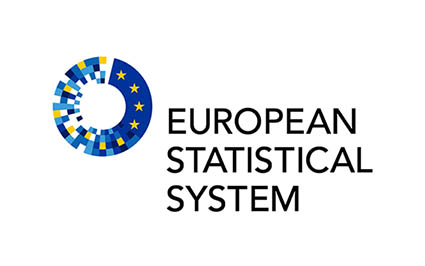International cooperation
In today’s rapidly evolving and changing world, international cooperation is essential for the production, development and explanation of statistics. International cooperation takes place both globally and regionally.
The aim of international cooperation is to:
- design and develop comparable statistics;
- adopt innovative methods;
- find new data sources
The modernisation of statistical systems, the introduction of new data sources and processing methods makes statistical production more efficient and contributes to quality and user-friendly data.
Statisticians and analysts need to decide on a daily basis how to get information from surveys and big data, make it comparable and draw the right conclusions. Big data are, for example, the data retained by mobile phone operators, which are not directly intended for the production of statistics. To retrieve the necessary data from these, traditional solutions are no longer sufficient.
The increased possibilities of producing statistics and the introduction of new technologies and programs require sharing of experiences and cooperation with other countries and organisations. Statistical cooperation takes place in working groups. For example, a global working group of statistical organisations called Inter-Agency Task Force on International Trade Statistics meets once a year. It allows Eurostat, together with the United Nations Statistics Division, OECD, IMF, World Trade Organisation (WTO) and some countries to develop standards and guidelines for external trade statistics.
Global cooperation
United Nations
Statistics Estonia works closely with the United Nations Statistics Division in New York and the United Nations Economic Commission for Europe Conference of European Statisticians (UNECE CES) in Geneva.
The cooperation areas include national accounts and international trade, energy, industry, environment, population and social statistics.
OECD
The OECD statistical working groups are highly regarded when it comes to the development of methodology. The working groups are the source of many new initiatives and methodologies. Our experts most frequently participate in meetings in the fields of economic, environmental and education statistics.
The European Statistical System (ESS)
The European Statistical System (ESS) is a partnership between the statistical office of the European Union (Eurostat) and the national statistical organisations of EU countries. These organisations are responsible for the development, production and dissemination of official statistics. EEA and EFTA countries are also involved. Statistics Estonia represents Estonia’s interests and positions both in Eurostat working groups and committees and in the Council Working Party on Statistics, which develops EU statistical legislation.
The activities of statistical organisations are governed by the European Statistics Code of Practice. Most of the statistics production areas are laid down in the legal acts of the European Statistical System. The acquis communautaire for the production of European statistics is described in the Statistical Requirements Compendium. The requirements for the production and transmission of statistics to Eurostat, the so-called gentleman’s agreement, are agreed at the meetings of the directors of statistical offices. Cooperation also takes place in the area of experimental statistics, for which the methodology is not yet fully coordinated across countries, and therefore, the data are not fully comparable. Experimental statistics also concerns the introduction of new data sources and analytical tools.
European statistics are governed by Regulation (EC) No 223/2009 of the European Parliament and of the Council, which serves as the basis for preparation of the European statistical programme. It provides a framework for the development, production and dissemination of European statistics, implemented through annual work programmes.
The European Union supports the European statistical programme.
The ESS Vision 2020 focuses on statistics
- users;
- quality;
- new data sources;
- efficiency of the production process;
- dissemination and communication.
Regional cooperation
Each year, several working meetings of the statistical offices of Baltic countries take place in Estonia, Latvia and Lithuania. The purpose of these meetings is to exchange experiences and discuss methodologies and new data sources. In addition, there are meetings of Baltic and Nordic specialists.
Sharing practical experience with statistical organisations in other countries
Statistics Estonia’s experts are continuously educating themselves, both through webinars and study visits to different countries. Most often, we apply the experiences of Nordic countries.
With the support of both EU and UN assistance programmes, Statistics Estonia also organises training and exchanges experiences with people working in the statistical offices of other countries. Our staff also gains practical experience in the Nordic countries as well as from the European Statistical Training Programme (ESTP) and annual global statistical conferences.
The United Nations Statistical Commission adopted the Fundamental Principles of Official Statistics in 1994. For example, principle 8 states that "coordination among statistical agencies within countries is essential to achieve consistency and efficiency in the statistical system".

